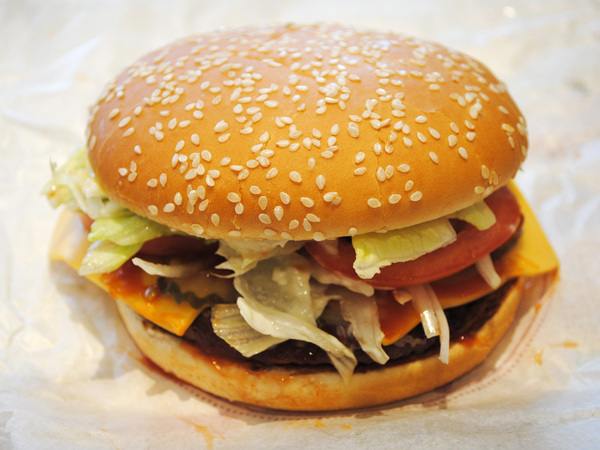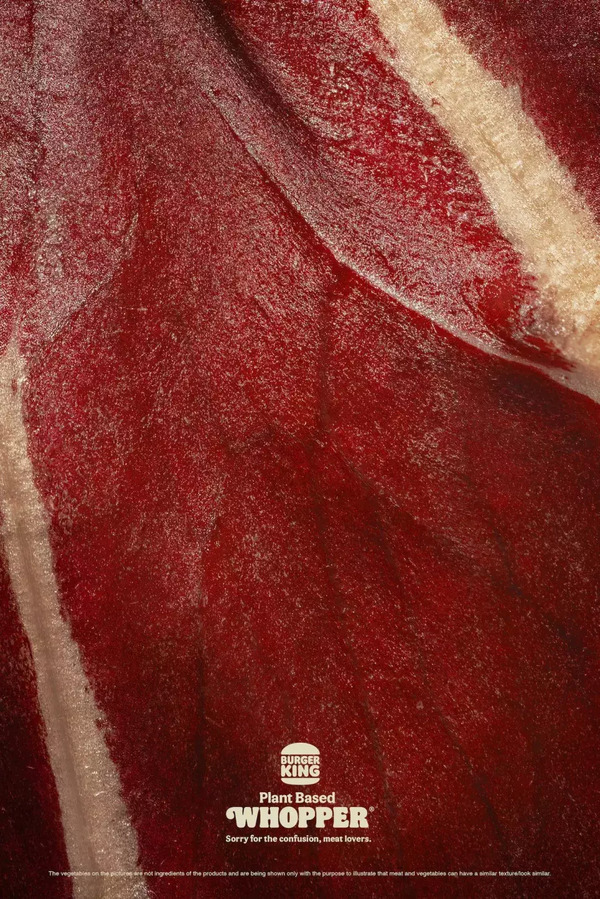
A Whopper, as portrayed by Wikipedia. (Wikimedia Commons)
At a time of global conflict, it perhaps seems like small potatoes—or small beef patties, as it turns out—to complain about the size of the Whopper.
But a recent lawsuit shows that, when given the opportunity, people will complain about anything in the hopes of getting $5 coupons four years from now.
A Florida lawyer has filed a federal lawsuit, seeking class action status, claiming that Burger King’s Whopper patties are too small, around an estimated 35 percent smaller than what gets shown in the ads.
“Burger King advertises its burgers as large burgers compared to competitors and containing oversized meat patties and ingredients that overflow over the bun to make it appear that the burgers are approximately 35 percent larger in size and contain more than double the meat than the actual burger,” the lawsuit, first reported on by the South Florida Sun-Sentinel, claims.
As I wrote about back in February, lawsuits like these are extremely common, often in the context of labeling and naming conventions—one noteworthy example I pointed out was that of MorningStar Farms’ veggie burgers, which faced a legal knock because they were primarily made of wheat. (That suit was quickly thrown out.)

A recent Burger King ad. Would Burger King get sued for portraying this plant as looking like a piece of steak?
But the claims about Burger King’s beef patties come at a time when the company has been taking increasingly bold approaches to how it advertises itself. In one 2020 ad, the company literally showed a burger getting covered in mold to highlight the fact that it wasn’t loaded with preservatives. And more recently, to help highlight its veggie burgers, it developed a series of close-up ads of vegetables that were cropped very tightly so as to look like meat products. Nobody is claiming that Burger King is selling moldy burgers or giving people plants instead of actual beef when requested.
Anyway, far be it from me to criticize the legal actions of a lawyer from Florida, but most class action lawsuits of this nature add up to “who really cares, honestly.”
That’s not to say that there isn’t a potential opportunity to help improve things for customers, but I think there’s probably a degree here of hunting for the next excuse to file a class action lawsuit against a company with the money to pay for it, and score some sort of settlement that helps drum up extra money for said law firm.
This case is very comparable to the class-action lawsuit from more than half a decade ago, when, after people on social media complained, Subway was sued because its footlongs were not consistently 12 inches long. Subway settled, but only for a tiny amount that mostly went to lawyers, and only because of the “media frenzy” the issue created—not because the case was particularly strong.
Circuit Judge Diane Sykes, who presided over a portion of the Subway case that involved legal fees, said something that I think applies to every single lawsuit involving perceived size in fast food. It’s a game that nobody really wins.
“A class action that seeks only worthless benefits for the class and yields only fees for class counsel is no better than a racket and should be dismissed out of hand,” she wrote. “That’s an apt description of this case.”
Remember: If Burger King slightly increases the size of its burgers or stops advertising them with such big patties, it doesn’t do anything for anyone except the lawyers who brought the case. And even then, the judge might still reject paying for the legal fees.
Time limit given ⏲: 30 minutes
Time left on clock ⏲: 53 seconds



